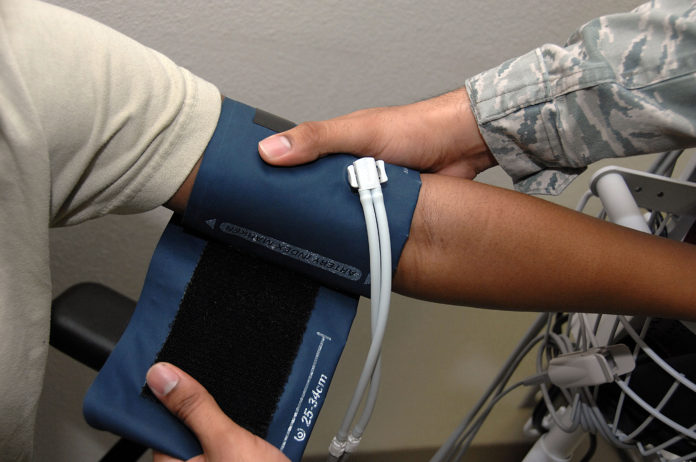It is estimated that more than 294 million people are living with hypertension in the South-East Asia Region
The World Health Organisation regional office for the south east Asia region (SEARO) has set five priorities for the region to reduce hypertension by addressing the risk factors, community participation, regular monitoring and a policy level focus on the condition.
In a statement delineating the approach, WHO regional director Dr Saima Wazed said: “First (priroity is), reducing hypertension risk factors by implementing WHO Technical packages for tobacco control, salt reduction, elimination of trans-fatty acids, promoting physical activity, and reducing air pollution. Second, accelerating the coverage and management of hypertension within primary healthcare by strengthening interventions outlined in the WHO HEARTS and WHO Package of Essential Noncommunicable Disease interventions.
Third, establishing and regularly monitoring national targets and indicators for hypertension, to enhance accountability and track progress towards SEAHEARTS milestones.” WHO’s South-East Asia Region comprises Bangladesh, Bhutan, Democratic People’s Republic of Korea, India, Indonesia, Maldives, Myanmar, Nepal, Sri Lanka, Thailand and Timor-Leste.
May 17 is observed as World Hypertension Day. Hypertension, in the words of the World Hypertension League (WHL), is ‘a driving force in the global epidemic of non-communicable diseases (NCDs) and the leading risk factor for death and disability globally.’ World Hypertension Day, initiated by WHL in 2005, aims to increase awareness of this silent killer, and galvanise global action to combat high blood pressure. This year, the theme is a call to ‘Measure Your Blood Pressure Accurately, Control It, Live Longer.’
The fourth priority is ensuring convergence of hypertension prevention and management services with other national programs, including maternal and child health, tuberculosis, and HIV programs. Te fifth and last priority is empowering communities and individuals for self-care management of hypertension, incorporating measures such as low sodium diets, reducing tobacco and alcohol use, regular physical activity, and conducting periodic blood pressure assessments.
Early detection and control are crucial for reduction of incidence of hypertension, Wazed added. “Amongst adults with hypertension, half are unaware they have it, and nearly 1 in 6 do not have their blood pressure under control. Uncontrolled, it can lead to heart attacks, strokes, kidney failure, and early death. Limited access to affordable healthcare services for hypertension is one of prime reasons for the low Universal Service Coverage Index for most countries in our Region and impacts access to quality health services,” she said.


